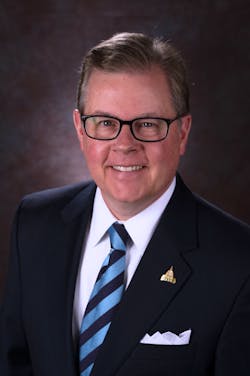One of the most pressing challenges facing airports today is congestion at security checkpoints and entry into the United States. There’s no doubt that long security and border control lines are frustrating for passengers and airports alike, and that they have a significant impact on the travel experience for millions of people every day.
The good news is that there has been meaningful progress on these issues in recent months. Airports Council International-North America (ACI-NA) is leading the charge to implement policy changes that will increase staffing for both Transportation Security Administration (TSA) and U.S. Customs and Border Protection (CBP), which will go a long way to alleviating these problems. And we will continue to advocate for resources and better processes to improve passenger security screening and facilitation.
In addition to modernizing our airport infrastructure, ensuring airports have an adequate number of TSA and CBP personnel is one of the most effective ways to reduce long wait times and crowded ports-of-entry. For too long, lack of staffing resources has hampered airports’ ability to protect the American public in a complex world while at the same time also providing an efficient screening process. In fact, CBP’s own workload staffing model shows another 3,700 CBP officers are needed to meet the growing demands of trade and travel through the airports, land ports, and seaports around the country.
Staffing shortages cause significant travel disruptions and negatively impact the U.S. economy. The average international traveler spends $4,200 per visit traveling to the United States, but persistent wait times and missed flight connections could discourage travel, therefore hurting the economy.
Recent legislation introduced in the Senate will take important steps to fix inadequate staffing. The Securing America’s Ports of Entry Act, introduced by Senators John Cornyn (R-TX) and Gary Peters (D-MI) would increase the authorized number of CBP officers by at least 600 annually to help the agency meet its current and future staffing needs. It would also provide greater transparency and accountability to CBP’s increasing reliance on reimbursable services agreements and temporary duty assignments to cover its system-wide staffing shortfalls.
ACI-NA supports this bipartisan legislation and recently signed a leer to Congress with leading voices from various shipping, tourism, travel, trade, law enforcement, and employee groups urging them to pass this important bill.
Further, the House of Representatives recently advanced the FY 2020 DHS Funding Bill, which includes big wins for airports. Specifically, the measure calls for boosting CBP officer staffing at ports-of-entry and maintaining several important TSA airport security programs.
Technology also plays an important role in ensuring that we are addressing long wait times. ACI-NA has supported airports as they implement innovative technologies including biometrics, Mobile Passport Control – which is now available at 26 of our nation’s busiest airports – and Automated Passport Control kiosks at most others to help expedite entry into the United States. The success of Mobile Passport is directly attributable to the strong partnerships between airports and CBP.
ACI-NA also supports airports as they continue to proactively promote Trusted Traveler Programs – including TSA PreCheck, Global Entry, and NEXUS – to expedite security screening and processing at U.S. and Canadian airports for pre-approved passengers. These programs all play an important role in streamlining the screening process and moving passengers through checkpoints efficiently.
As airports continue to implement procedures that will improve the screening and facilitation process, ACI-NA will simultaneously work to ensure better policies are coming out of Washington. We’ve made important progress even just this year, and remain committed to fixing this critical issue for our airports and the millions of travelers we serve each year.
Kevin Burke is President and CEO of Airports Council International-North America.



